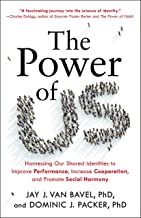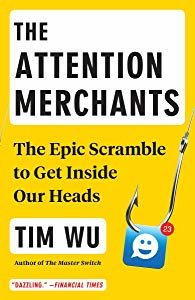Hidden Brain
One anthem.
September 25, 2021Couple this commentary with Shankar Vedantam’s Hidden Brain recent episode on Group Think.
How do the groups you identify with shape your sense of self? Do they influence the beer you buy? The way you vote? Psychologist Jay Van Bavel says our group loyalties affect us more than we realize, and can even shape our basic senses of sight, taste and smell.
https://podcasts.apple.com/us/podcast/hidden-brain/id1028908750?i=1000536058522
Jay Van Bavel is an Associate Professor of Psychology & Neural Science at New York University, an affiliate at the Stern School of Business in Management and Organizations, and Director of the Social Identity & Morality Lab.
Thoughts.
November 28, 2018[Childe Hassam, 1917]
Intrigued by a statement from one of my students, the statement “politics of locations.” I finished listening to Serial Season #3: “Serial is heading back to court. This time, in Cleveland. A year inside a typical American courthouse. This season we tell you the extraordinary stories of ordinary cases. One courthouse, told week by week.” The season is centered in Cleveland, so as the host and writers focus on the criminal justice system, the listener also tours the neighborhoods of Cleveland, meeting people struggling with economics and oppression.
Hidden Brain, an NPR radio program, focused recently on how zip codes determine destiny. The name of the broadcast is titled, “Zipcode Destiny: The Persistent Power of Place and Education.”
https://www.npr.org/2018/11/12/666993130/zipcode-destiny-the-persistent-power-of-place-and-education
“People ask… is the American dream alive or not today? And I actually think the question itself is sort of ill-posed. The term ‘the American Dream’ — really we should think of it as ‘the Iowa Dream’ or ‘the Atlanta Dream’ or ‘the California Dream’ because there’s so much variation within this country.”
https://www.npr.org/2018/11/12/666993130/zipcode-destiny-the-persistent-power-of-place-and-education
And MSNBC host Chris Hayes recently discussing implicit racism and politics on his podcast, “Why Is This Happening?”, the DNA of racism, literally in the soil of America’s South.
“Hayes speaks with Maya Sen and Matthew Blackwell as they trace southern racial conservatism all the way back to glacial deposits.”
Particularly fascinating in context of the GOP Senate outcome in Mississippi.
From all of this the imprint of Impressionism…the human impressionism of the environment on personality and behavior: good begets good, bad begets bad.
Yes. Absolutely. “Human virtue vs. capitalism.”
Thinking of Elon Musk and his ‘neural lace’ project which is completely focused on the future and humans, “needing to become one with machines.” How about now? Can we fix ‘now?’
One of the final statement’s in season #3 of Serial continues to loop in my mind:
“Let’s all accept something’s gone wrong and work from that premise.”
Indeed.
Attention is Resource
October 3, 2018Life is what we pay attention to. [William James] Attention is “key to life and a meaningful life.”
Tim Wu, a Columbia University Law Professor, delves into the history of the advertising industry in his book, The Attention Merchants. Hidden Brain: “In his book, Wu reveals the techniques media companies have developed to hijack our attention. “This sort of of surrender of control over our lives speaks deeply to the challenge of freedom and what i means to be autonomous.”
This Is Your Brain On Ads: How Media Companies Hijack Your Attention
Posted by Daniel Natal:
Creating God.
July 25, 2018‘Let’s take a moment to go back in time.
For most of human history, we lived in small groups of about 50 people. Everyone knew everybody. If you told a lie, stole someone’s dinner, or failed to defend the group against its enemies, there was no way to disappear into the crowd. Everyone knew you, and you would get punished.
But in the last 12,000 years or so, human groups began to expand. It became more difficult to identify and punish the cheaters and free riders. So we needed something big — really big. An epic force that could see what everyone was doing, and enforce the rules. That force, according to social psychologist Asim Shariff, was the popular idea of a “supernatural punisher” – also known as God.
Think of the vengeful deity of the Hebrew Bible, known for sending punishments like rains of burning sulfur and clouds of locusts, look and lice.
“It’s an effective stick to deter people from immoral behavior,” says Shariff.
For Shariff and other researchers who study religion through the lens of evolution, religion can be seen as a cultural innovation, similar to fire, tools or agriculture. He says the vibrant panoply of religious rituals and beliefs we see today – including the popular belief in a punishing God – emerged in different societies at different times as mechanisms to help us survive as a species.
This week on Hidden Brain, we explore a provocative idea about the origin, and purpose, of the world’s religions.’
-The Hidden Brain/NPR



